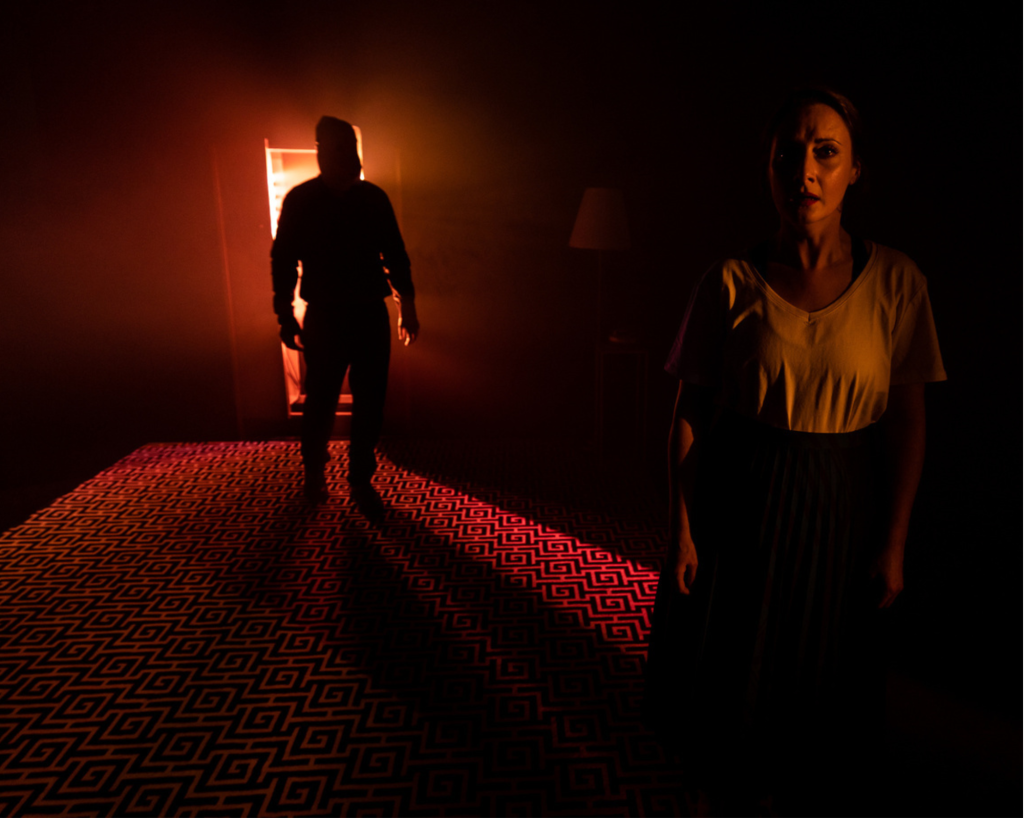 (4 / 5)
(4 / 5)
In this square bit of carpet, a duo bring a story of abuse, mental health and difficult relationships.
Faye’s home was broken into; she had come home drunk and therefore, the timings and activities are a blur. She’s not sure what has happened… but she is sure. She hasn’t slept and then, by rekindling her relationship with her brother, she enlists his help to “cure” her. But what develops are home truths, forgotten abuse and no cure in sight.
This harrowing and intense story is mostly based on the verbal interaction between Faye and her brother Naoise. They are rekindling their relationship after a year of no contact after the home invasion. Soon, truths come out on both sides and the change of blame and shocking events switches between the two. It is more than easy for us to side with Faye as a female suffering with trauma, but the story often takes a turn, putting her in the position of the abuser. It is shocking to say the least but important in highlighting the lack of gender in trauma and abuse.
The elevation of the story, interspersed with “flashbacks” that have been heightened by music and dance, add a theatrical element and to some degree is rather comical. But as it repeats, as the story descends into chaos and fear, these become more intense. McCurry’s (Faye) descent into madness, while trying to be rational is a triumph and ultimately shocking. The reaction by her brother and his physical show of fear shows that this isn’t normal and we soon jump to his side, full of fear and worry.
The energy between them is palpable and some when the most shocking moments happen, a pin could drop with the shock and quietness we experience. The changing between theatricality and almost naturalism is seamless and ensuring the important story is told and experienced in a mind blowing way.
Lie Low is a fantastic piece of theatre. It highlights important stories and the impact of trauma, but also of gender-less abuse. Theatrically it is brilliant and does well to change the platform between reality and the imagined.


